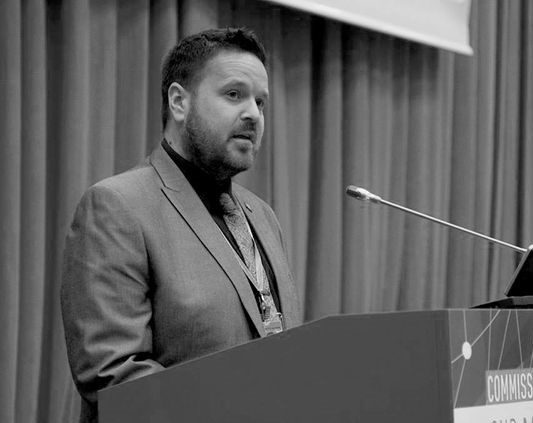The ATHENA Network (ATHENA) is a global network of individual and institutional members that has been at the forefront of ensuring the centrality of gender equity and human rights in the HIV response since 2006.
ATHENA’s regular partners include global, regional, national, and community leaders as well networks and organizations led by adolescent girls and young women most affected by HIV; women living with HIV; and women in all of our diversity, including from key populations, caregivers, and across LGBTQ communities; and broader gender justice, feminist and sexual and reproductive health and rights organizations.
- Worldwide, 19.1 million women and girls were living with HIV as of 2019. Women and girls account for over half of all people living with HIV and HIV continues as the leading cause of death for women of reproductive age. 6,200 adolescent girls and young women acquire HIV each week. Globally, three in five new cases of HIV amongst young people are among young women. In sub-Saharan Africa, young women are just 10% of the population yet they account for 1 in every 5 new cases of HIV. Young women (10-24 years old) are twice as likely to acquire HIV as young men the same age.
- Gender inequality, discrimination, violence, limited access to education and a lack of tailored services limit women’s and girls’ access to health care services (including HIV and HIV related services) and fuel new cases of HIV acquisition.
- Adolescent girls and young women (AGYW) face disproportionate risks for HIV acquisition because of a gender unequal word. They face persistent gender inequality and systematic human rights violations that include discrimination in employment and education and exposure to interpersonal and sexual violence among others that make negotiating safer sex a challenge. Adolescent girls and young women have limited access to comprehensive HIV prevention and treatment, including few if any HIV prevention technologies that have been developed for them.
- Organizing and advocacy by women and young women in all their diversity, including adolescent girls and young women alongside older women living with HIV is central to efforts to improve human rights environments, improve HIV and HIV-related services accessibility and utilization, and improve efficiency and effectiveness of national and international funding for health and other human rights programs.
RCF funding 2019-2021
ATHENA received US$ 850,000 in funding from the Robert Carr Fund for work during 2019-2021. This funding was allocated to both core and strategic program costs to help build the capacity of the network and to support collective action globally. This is a continuation of steady RCF investments in networks of women living with HIV since 2013 with particular focus on Eastern and Southern Africa where an effective scaled-up HIV response is urgently needed for this demographic.
Geographic coverage
ATHENA is a global network with an emphasis on supporting adolescent girls and young women as well as partnering with women living with HIV in Eastern and Southern Africa.
Population coverage
ATHENA focuses on building the power and leadership of women and girls to advance health and rights, policy engagement, and community leadership of adolescent girls and young women in countries with the highest HIV prevalence.
Activities 2019-2021
With RCF funding in 2019-2021, ATHENA will:
- Convene a global partners’ forum to build bridges, strengthen alliances and align agendas among young women led initiatives and the broader women and HIV movement, including most centrally networks of women living with HIV and from other key populations.
- Implement a strategic planning and organizational strengthening process for ATHENA to update its strategies and enhance its governance with input from and leadership by adolescent girls and young women who have been most affected by HIV as well as by women living with HIV from around the world to invest in and enable a stronger more democratic Network. This will also facilitate a stronger ATHENA Board and staff with enhanced financial management capacity.
- Invest in the professional growth and leadership of young women who are most affected by HIV as team members and Network members so that adolescent girls and young women most affected by HIV are leading and influencing the HIV response in decision-making spaces as well through to online discussions and in-person peer-to-peer community conversations as part of the WhatWomenWant and #WhatGirlsWant campaigns.
- Support, mentor and partner with young women activists from East and Southern Africa to participate in global HIV, sexual and reproductive health and rights and gender equality policy fora including the Commission on the Status of Women (CSW), Women Deliver, the International HIV and Adolescence Workshop, the International Women and HIV Workshop, ICPD+25 processes, Beijing+25 processes in addition to providing capacity strengthening and technical support to facilitate young women leaders’ participation in country processes such as those of the Global Fund to Fight AIDS, Tuberculosis and Malaria and PEPFAR.
- As result of this work, women across diversities with a special focus on adolescent girls and young women living with and impacted by HIV across geographies and socio-economic spheres will have greater agency and ability to advocate for and influence research, policies, programs, interventions including new technologies and to prevent HIV acquisition, halt stigma and discrimination, eliminate all forms of violence against women and girls, repeal harmful laws and unjust criminalization, and overall ensure a more effective response to the HIV epidemic rooted in gender equity and human rights.
Intended results 2019-2021
The intended results from this work during 2019-2021 are related to increased network strength and influence, including:
- Young women leaders will have support from ATHENA to participate in a global alliance and develop aligned agendas;
- Regional networks of women living with HIV will have support from ATHENA to collaborate for global action;
- ATHENA will maintain consistent, engaged and vibrant virtual curated platforms for learning, consultation, networking and collective advocacy by and for women and girls to have visible positive impact on the HIV response with particular regional influence in Eastern and Southern Africa.
